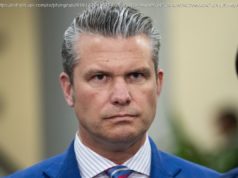The killing of Jamal Khashoggi may be scaring away the foreign partners Saudi Arabia needs to overhaul its economy. Empty seats at a high-profile conference reflect the danger.
BEIRUT, Lebanon — Crown Prince Mohammed bin Salman of Saudi Arabia wowed a hall full of global investors with his plan to build a $500 billion city of the future that would attract the world’s brightest minds in business and tech.
But that was last year.
This year, many of those investors stayed away as the killing of the dissident Saudi columnist Jamal Khashoggi cast a shadow over the prince’s trademark investment conference and his wider ambitions to reform the kingdom’s economy.
“It is both a political and an economic crisis,” said Karen E. Young, a resident scholar at the American Enterprise Institute. “The economic reform agenda is somewhat derailed. I don’t think it’s over, but this is a clear stall, mostly because it’s so dependent on foreign investment and this is the worst timing.”
The Khashoggi crisis began as Saudi Arabia was grappling with low oil prices and struggling to create jobs, lift its private sector and maintain generous, cradle-to-grave benefits for an increasingly youthful population. The international outrage over the killing has amplified those challenges by scaring off many of the foreign partners Crown Prince Mohammed is counting on to help carry out his ambitious reforms.
That could leave him in a compromised position, increasingly isolated at home by his swift rise to power and less able than previous royals to wield the kingdom’s mighty checkbook to solve problems at home and abroad.
As he rose to the summit of Saudi power over the past three years, Crown Prince Mohammed wooed a range of partners with his vision to transform the kingdom from a hidebound bastion of religious conservatism into a global hub with a diversified economy. To do that, he needed not only to change Saudi society by controlling the clerics and letting women drive, but also to entice foreign investors to join his plans and put their money behind them.
But worries about his judgment and commitment to the rule of law were already mounting after his kidnapping of the Lebanese prime minister, his detention of hundreds of princes and businessmen in a Riyadh luxury hotel, his prosecution of the war in Yemen and his spats with Qatar, Germany and Canada .
Those concerns boiled over after Saudi agents, some of them linked to the prince, killed Mr. Khashoggi in the Saudi Consulate in Istanbul on Oct. 2. The kingdom’s shifting explanations of what happened since then have not improved its image.
The conference, known as the Future Investment Initiative, concluded in the Saudi capital, Riyadh, on Thursday and served as a litmus test of sorts for where the prince’s vast reform efforts stand.
Thousands of executives and businessmen still showed up, the government said. Repeat attendees noted fewer Americans and Europeans were present this year, but more Russians, Asians and Arabs. That could indicate a shift in the kingdom’s pursuit of economic partnerships if the scandal over Mr. Khashoggi leads to permanent damage to its relationships with the West, analysts said.
Khalid al-Falih, the Saudi energy minister, said more than 25 deals worth $56 billion were signed, most of them with American companies. But $34 billon of those deals were with Saudi Aramco, the state oil monopoly, suggesting that investors are sticking to what Saudi Arabia is best known for.
“The U. S. will remain a key part of the Saudi economy because the interests that tie us are bigger than what is being weakened by the failed boycotting campaign of the conference,” Mr. Falih told Saudi state television.
Some of the biggest hits over the Khashoggi case have been in sectors the prince has pitched as emblematic of the new Saudi Arabia.
Richard Branson, the chairman of Virgin Group, suspended discussions with Saudi Arabia’s Public Investment Fund over a planned $1 billion investment in Virgin’s space ventures.
“I think that people cannot go around killing and cutting up journalists in this day and age, and I think if they do, everybody in the world has to make a stance against that,” Mr. Branson said last week while unveiling his star on Hollywood’s Walk of Fame.
Early this month, Crown Prince Mohammed said that “an amazing deal” that would be “far away from oil” would be announced during the conference. But it never was, raising questions about what other deals had fallen through.
The day before the conference, the World Economic Forum issued a statement clearly aimed at those dubbing the Saudi conference “Davos in the Desert,” saying it would use “all means to protect the Davos brand against illicit appropriation.”
In spite of its efforts to court foreign investment, the kingdom has struggled to shake its image as place to get financial help, not to park capital.
As other top foreign names dropped out of the conference, the kingdom invited Imran Khan, the Pakistani prime minister. But before heading to Riyadh, Mr. Khan told journalists that he had to go because “right now we have the worst debt crisis in our history.”
“We’re desperate,” he said.
He flew home with a $6 billion aid package.
King Abdullah II of Jordan also appeared, just months after he had received $2.5 billion in financial aid from Saudi Arabia and its Gulf neighbors to ease economic distress that had sent his subjects into the streets.
Crown Prince Mohammed’s formal appearance on Wednesday also signaled a downgrade.
Last year, he had announced plans to build a $500 billion city called NEOM that would be staffed by robots and run on solar power. On stage was Masayoshi Son, the chief executive of SoftBank, whose $100 billion Vision Fund has a $45 billion commitment from Saudi Arabia.
This year, however, Mr. Son flew to Riyadh, told the crown prince he would not speak and left.
Instead, Crown Prince Mohammed shared the stage with the crown prince of Bahrain, a tiny island nation heavily dependent on Saudi Arabia, and Saad Hariri, the prime minister of Lebanon, which is hardly an economic dynamo.
Mr. Hariri, who was temporarily kidnapped by the Saudis and forced to announce his resignation in Riyadh last year, hails from one of the world’s most corrupt countries, one itself at risk of financial crisis.
“People are still very interested in Saudi Arabia, and the conference drew people because they want Saudi money, they want to sell stuff to Saudi or they want to charge fees in Saudi,” said Steffen Hertog, a scholar of Saudi Arabia at the London School of Economics. “And they will continue to try to do that.”
While the killing of Mr. Khashoggi could have a chilling effect on some sectors, it could also shift the focus away from dreamy projects like NEOM to further development of the kingdom’s economic strengths, which are tied to oil.






